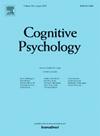自由的时间,更敏锐的头脑:工作记忆改进的计算研究
IF 3
2区 心理学
Q1 PSYCHOLOGY
引用次数: 0
摘要
额外的自由时间能提高工作记忆(WM)的表现。这种自由时间的益处在连续位置上会变得更大,这种现象最近被称为 "褪色效应"。不同的机制可以解释这种现象。在本研究中,我们通过计算实现了这些机制,并进行了实验测试。我们进行了三项实验,改变了人们编码项目的时间以及回忆项目的顺序。实验一在一个范例中操纵了自由时间的益处,在这个范例中,人们按照向前或向后的顺序回忆项目。实验 2 采用了同样的正向-逆向回忆范式,并在编码结束时进行了一项分散注意力的任务。实验 3 采用的是一种提示回忆范式,其中的项目以随机顺序进行测试。在所有三个实验中,自由时间效益的最佳拟合模型包括:(1)巩固机制,即刚编码的项目继续重新编码,这是可用自由时间总量的函数;(2)稳定机制,即随着自由时间的增加,项目对输出干扰的抵抗力增强。我们的数据并不支持衰减和刷新等机制以及基于编码资源补充的模型。本文章由计算机程序翻译,如有差异,请以英文原文为准。
Free time, sharper mind: A computational dive into working memory improvement
Extra free time improves working memory (WM) performance. This free-time benefit becomes larger across successive serial positions, a phenomenon recently labeled the “fanning-out effect”. Different mechanisms can account for this phenomenon. In this study, we implemented these mechanisms computationally and tested them experimentally. We ran three experiments that varied the time people were allowed to encode items, as well as the order in which they recalled them. Experiment 1 manipulated the free-time benefit in a paradigm in which people recalled items either in forward or backward order. Experiment 2 used the same forward–backward recall paradigm coupled with a distractor task at the end of encoding. Experiment 3 used a cued recall paradigm in which items were tested in random order. In all three experiments, the best-fitting model of the free-time benefit included (1) a consolidation mechanism whereby a just-encoded item continues to be re-encoded as a function of the total free-time available and (2) a stabilization mechanism whereby items become more resistant to output interference with extra free time. Mechanisms such as decay and refreshing, as well as models based on the replenishment of encoding-resources, were not supported by our data.
求助全文
通过发布文献求助,成功后即可免费获取论文全文。
去求助
来源期刊

Cognitive Psychology
医学-心理学
CiteScore
5.40
自引率
3.80%
发文量
29
审稿时长
50 days
期刊介绍:
Cognitive Psychology is concerned with advances in the study of attention, memory, language processing, perception, problem solving, and thinking. Cognitive Psychology specializes in extensive articles that have a major impact on cognitive theory and provide new theoretical advances.
Research Areas include:
• Artificial intelligence
• Developmental psychology
• Linguistics
• Neurophysiology
• Social psychology.
 求助内容:
求助内容: 应助结果提醒方式:
应助结果提醒方式:


